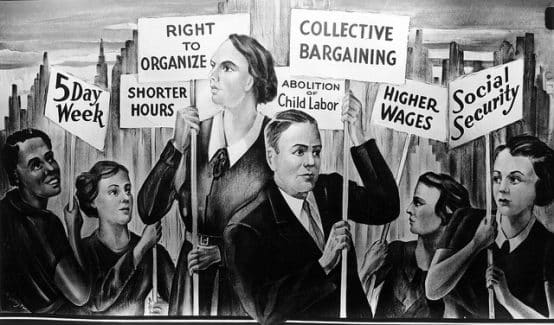
Discover the untold story behind ILO’s global impact on labor rights and how it shapes the future of work.
For UPSC aspirants who have chosen Commerce and Accountancy as their optional subject, understanding the role of the International Labour Organization (ILO) in promoting labor rights is crucial. In this blog post, we will explore into the significance of ILO’s global role in safeguarding the rights of workers worldwide. By gaining a comprehensive understanding of this topic, aspirants can better prepare themselves for the challenges and opportunities that lie ahead in their UPSC examination. Let us explore the intricate workings of the ILO and its impact on labor rights across the globe.
In today’s world, it is essential for people to have fair and safe jobs wherever they work. This is where the International Labor Organization (ILO) comes in. The ILO is like a superhero for workers all around the globe, making sure they are treated well and have good working conditions.
What is the ILO?
The International Labor Organization (ILO) is an organization that works to ensure that people have fair and safe jobs in every part of the world. Just like how a referee makes sure everyone plays by the rules in a game, the ILO makes rules to protect workers’ rights and keep them safe at work.
Why is the ILO Important?
The ILO is crucial because it helps workers by setting rules that protect their rights. These rules make sure that workers are paid fairly, have safe workplaces, and are treated with respect. Without the ILO, workers might not have these important protections.
Labor Rights and Why They Matter
What are Labour Rights?
Labor rights are like rules that help workers have good and safe jobs. These rules make sure that workers get fair pay, work in places that are not dangerous, and have the right to take breaks when they need to rest.
How Labor Rights Help Workers
When workers have labor rights, it means they cannot be treated badly by their bosses. These rights make sure that workers are safe at work and can do their jobs without worrying about getting hurt or not being paid enough. Labor rights are important because they protect workers and make sure they are treated fairly.

Global Impact of the ILO
In this section, we will explore how the International Labor Organization (ILO) makes a difference around the world and helps improve working conditions globally.
ILO’s Work Around the World
The ILO works tirelessly to ensure that workers in different countries are treated fairly and have safe working conditions. For example, in some countries where child labor was prevalent, the ILO helped create laws to protect children from being forced to work instead of going to school. This way, children can have a chance to learn and grow without being exploited for labor.
Additionally, the ILO has been instrumental in advocating for equal pay for equal work, regardless of gender. In many parts of the world, women were paid less than men for doing the same job. Through its efforts, the ILO has helped bridge this gap and ensure that all workers are paid fairly for their work.
Success Stories
There have been many success stories where the ILO’s work has had a significant impact on workers’ lives. For instance, in a country where workers were not provided with proper safety equipment while working in mines, the ILO stepped in to enforce regulations that required companies to provide necessary protective gear. This led to a decrease in workplace accidents and improved the overall safety of the workers.
In another success story, the ILO helped set up programs to train workers in skills that are in high demand in the job market. This initiative not only helped workers find better-paying jobs but also boosted the country’s economy by providing skilled labor for industries.
Understanding Labor Standards
Labor standards are like rules that are set up to make sure that workers are treated fairly and safely in their workplaces. These standards are crucial because they help ensure that people have good working conditions and are not taken advantage of by their employers.
What are Labor Standards?
Labor standards are the guidelines put in place by organizations like the International Labor Organization (ILO) to protect workers’ rights and safety. These standards cover things like fair wages, limits on working hours, and rules to ensure workplaces are safe for employees.
Examples of Labor Standards
There are many different types of labor standards that help guarantee fair and safe working conditions. For example, laws that set a minimum wage make sure that all workers are paid a decent amount for their work. Limits on working hours prevent employees from being overworked and ensure they have time for rest and relaxation. Additionally, rules on workplace safety mandate things like providing protective gear and training to prevent accidents and injuries on the job.
Occupational Safety and Health
Occupational safety is all about making sure that workplaces are safe and healthy for people to work in. This means that workers should not have to worry about getting hurt or sick while they are doing their jobs.
How the ILO Promotes Safety
The International Labor Organization (ILO) plays a crucial role in promoting safety at work. They create rules and guidelines that companies and governments can follow to keep workers safe and healthy. These rules cover things like making sure that machines are safe to use, providing protective equipment like helmets and gloves, and training workers on how to stay safe while working.
Conclusion
In this article, we have learned about the International Labor Organization (ILO) and the crucial work it does to ensure labor rights and improve workplace conditions around the world. The ILO is essential because it helps protect workers and make sure they are treated fairly.
Key Takeaways
We discussed how labor rights are important rules that guarantee fair pay, safe working environments, and other essential benefits for workers. The ILO plays a significant role in establishing and enforcing these rights to prevent exploitation and ensure workers’ well-being.
Moreover, we explored the global impact of the ILO, seeing how its efforts have positively influenced working conditions in various countries. By setting labor standards and promoting occupational safety, the ILO has made a tangible difference in the lives of countless workers worldwide.
Importance of the ILO
The International Labor Organization remains a vital organization dedicated to upholding labor rights and improving workplace conditions on a global scale. By championing fair treatment, advocating for safety, and promoting equality, the ILO continues to be a beacon of hope for workers everywhere.
Remember, every worker deserves to be treated with respect and dignity. Through the work of organizations like the ILO, we can strive towards a world where all individuals are valued and protected in their workplaces.